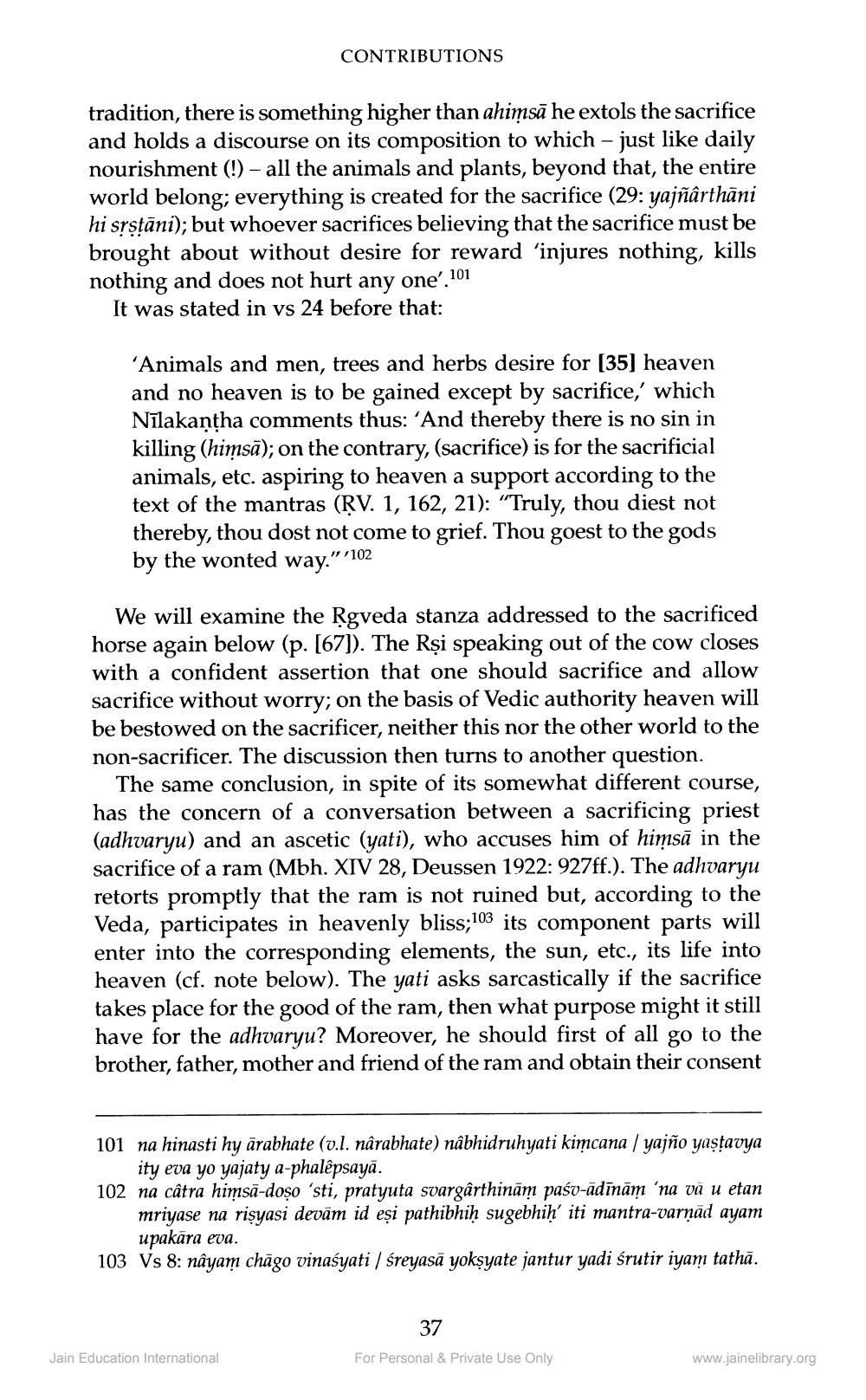________________
CONTRIBUTIONS
tradition, there is something higher than ahimsā he extols the sacrifice and holds a discourse on its composition to which - just like daily nourishment (!) - all the animals and plants, beyond that, the entire world belong; everything is created for the sacrifice (29: yajñârthāni hi srsťāni); but whoever sacrifices believing that the sacrifice must be brought about without desire for reward 'injures nothing, kills nothing and does not hurt any one'.101
It was stated in vs 24 before that:
'Animals and men, trees and herbs desire for [35] heaven and no heaven is to be gained except by sacrifice, which Nīlakantha comments thus: “And thereby there is no sin in killing (himsā); on the contrary, (sacrifice) is for the sacrificial animals, etc. aspiring to heaven a support according to the text of the mantras (RV. 1, 162, 21): "Truly, thou diest not thereby, thou dost not come to grief. Thou goest to the gods by the wonted way." '102
We will examine the Rgveda stanza addressed to the sacrificed horse again below (p. [67]). The Rși speaking out of the cow closes with a confident assertion that one should sacrifice and allow sacrifice without worry: on the basis of Vedic authority heaven will be bestowed on the sacrificer, neither this nor the other world to the non-sacrificer. The discussion then turns to another question.
The same conclusion, in spite of its somewhat different course, has the concern of a conversation between a sacrificing priest (adhvaryu) and an ascetic (yati), who accuses him of hiņsā in the sacrifice of a ram (Mbh. XIV 28, Deussen 1922: 927ff.). The adhvaryu retorts promptly that the ram is not ruined but, according to the Veda, participates in heavenly bliss;103 its component parts will enter into the corresponding elements, the sun, etc., its life into heaven (cf. note below). The yati asks sarcastically if the sacrifice takes place for the good of the ram, then what purpose might it still have for the adhvaryu? Moreover, he should first of all go to the brother, father, mother and friend of the ram and obtain their consent
101 na hinasti hy ārabhate (v.l. nârabhate) nâbhidruhyati kimcana / yajño yastavya
ity eva yo yajaty a-phalêpsayā. 102 na câtra himsa-doso 'sti, pratyuta svargârthinām paśv-ādīnām 'na vā u etan
mriyase na risyasi devām id esi pathibhiḥ sugebhiḥ' iti mantra-varņād ayam
upakāra eva. 103 Vs 8: nâyam chāgo vinaśyati / śreyasā yoksyate jantur yadi śrutir iyam tathā.
37
Jain Education International
For Personal & Private Use Only
www.jainelibrary.org




